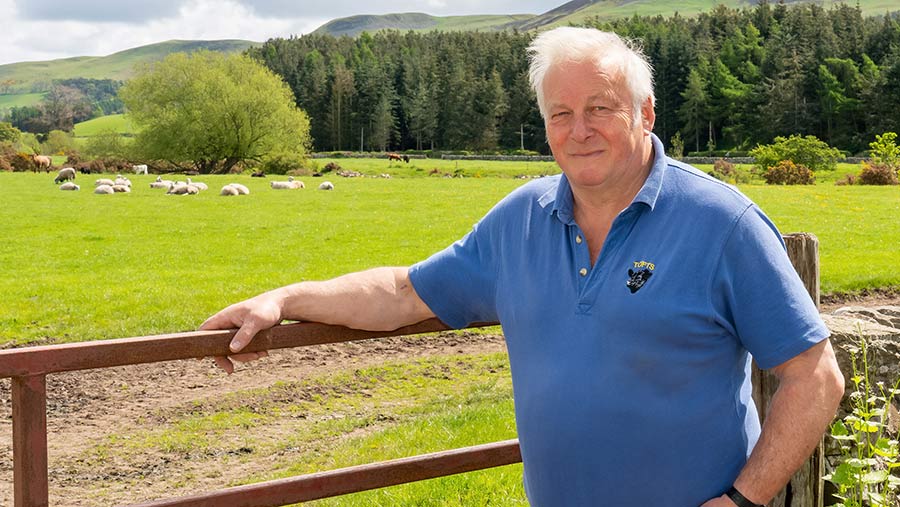Farmer Focus: Mulling over Alexander Inglis demise
 © Angus Findlay
© Angus Findlay Harvest was practically finished by the end of September. We had just one field of late-sown spring oats to cut.
Our target is always to finish harvest by the local Yetholm Border Shepherds’ Show on the first Saturday in October.
Late-sown spring crops in fields rising to more than 300m above sea level can be challenging at this time of year, with short, damp days.
This is the first time in my career (since 1979) that our spring barley has not hit malting specification. This thought brings me to the demise of Alexander Inglis & Son.
See also: Inglis’ farmer creditors paid less than 2p in the pound
For many years, all our malting barley headed in that direction. It was very convenient, especially with their storage facility some 18 miles away at St Boswells.
Business was conducted successfully year after year, with all our cereal crops heading to Diageo via Alexander Inglis to make Johnny Walker whisky, as well as several Diageo single malts, Gordon’s gin and Smirnoff vodka.
As farmers, we live in the public eye: results of shows and sales are readily available in the press, and support payments can be scrutinised on government websites.
It was a big shock and embarrassment to many farmers when their names and details appeared on the list of creditors following the collapse of the grain trader.
Risk management is now part of our everyday life, but sometimes circumstances conspire to catch us out.
The other day, we received a cheque for the grand sum of £136.83, this being the final settlement of 1.82p in the pound on our unsecured claim for oats that had been sold to another merchant trading through Inglis.
We hear a lot about the lonely business of farming and the mental health issues that go along with the sector.
It is not helped by the fact that our small, independent family businesses struggle to compete with the ever-increasing power of the global conglomerates that dominate our industry.
The farming community, with its small population, means that many of us are on first-name terms when it comes to combining business and pleasure.
Surely it is good to talk and share concerns with like-minded people? Losing sums of money (some of them substantial) to failed companies does nobody any good.

